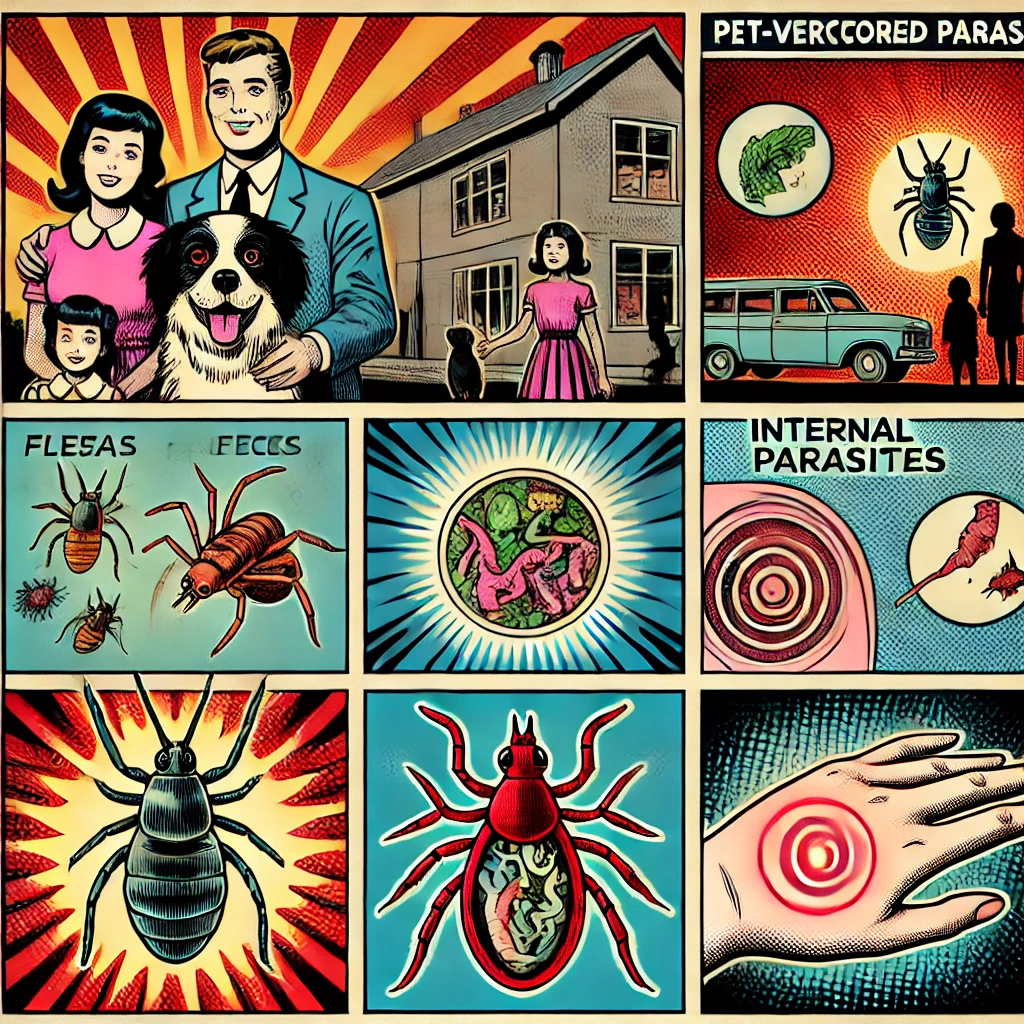Pet Vectored Parasites Causal to Disease Including Cancer
Ivermectin and/or Panacur-C for the save!
Parasites the root to all diseases is a great book on this subject author Dr Hulda Clark
Ramped-up and raging Dogs, Cats ownership explained 3 ways:
- 1 money for Masonic owners of food, health providers;
- 2 surrogate for human children foregone per depopulative agenda;
- 3 widely craven-for disease vectors by targets in profitable slow-kill agenda
Pets, cherished companions in many households, can inadvertently harbor parasites that pose health risks to humans. Recent discussions have highlighted concerns about pet-vectored parasites potentially contributing to diseases, including cancer.
Understanding Pet-Vectored Parasites
Pets, especially dogs and cats, can carry both external and internal parasites. External parasites include fleas, ticks, mites, and mosquitoes, which can cause skin irritations and act as vectors for other diseases. Internal parasites, such as hookworms, tapeworms, and roundworms, reside within the host’s body, often in the intestines, and can be transmitted through feces or intermediate hosts like fleas.
Parasites and Cancer in Animals
Certain parasites have been linked to cancer development in animals. For instance, the liver fluke Platynosomum fastosum is associated with cholangiocarcinoma (bile duct cancer) in cats. Similarly, the roundworm Trichuris muris infection can increase tumor numbers in mice. These cases illustrate that parasitic infections can lead to carcinogenesis in animal hosts.
Human Health Implications
While direct transmission of cancer from pets to humans is not a concern, the parasites they carry can pose significant health risks. For example, fleas and ticks can transmit diseases like Lyme disease and Rocky Mountain spotted fever. Additionally, certain tapeworms require fleas as intermediate hosts; if a human inadvertently ingests an infected flea, they can become hosts to the tapeworm. Moreover, internal parasites like Echinococcus granulosus, a type of tapeworm, can cause hydatid disease in humans, leading to cyst formation in organs and potentially severe complications.
Preventive Measures
To mitigate the risks associated with pet-vectored parasites:
- Regular Veterinary Check-ups: Ensure pets receive routine health examinations and appropriate deworming treatments.
- Flea and Tick Control: Implement effective flea and tick prevention strategies, including topical treatments, collars, and maintaining a clean living environment.
- Hygiene Practices: Practice good hygiene, such as washing hands after handling pets, especially before eating or preparing food.
- Environmental Management: Keep living areas clean, promptly dispose of pet feces, and prevent pets from hunting or scavenging to reduce exposure to parasites.
Conclusion
While pets enrich our lives, they can harbor parasites that pose health risks, including potential links to cancer in animals. By understanding these risks and implementing preventive measures, pet owners can protect both their health and that of their animal companions. Regular veterinary care, effective parasite control, and good hygiene practices are essential steps in minimizing the dangers associated with pet-vectored parasites.
